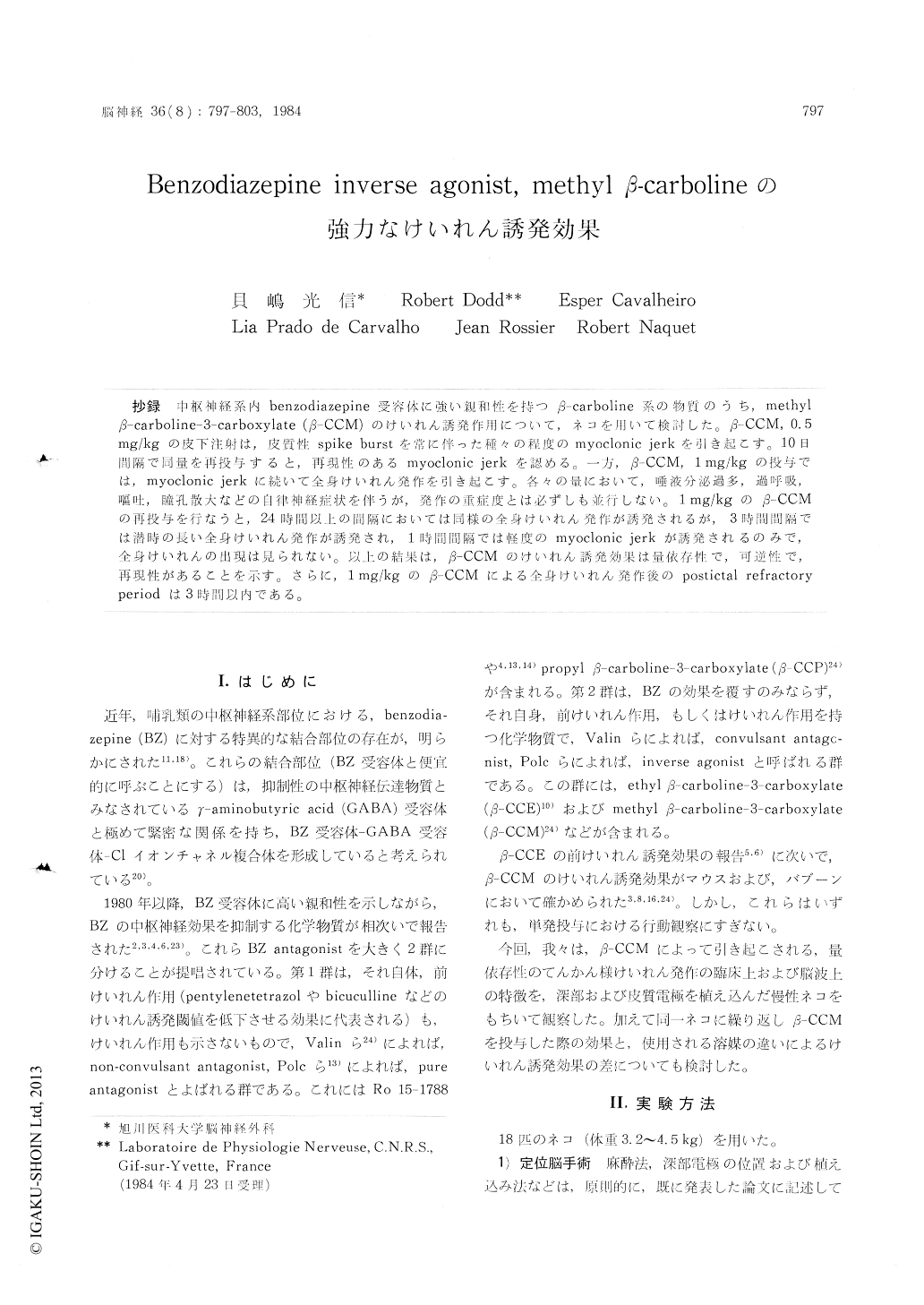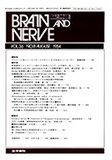Japanese
English
- 有料閲覧
- Abstract 文献概要
- 1ページ目 Look Inside
抄録 中枢神経系内benzodiazepine受容体に強い親和性を持つβ—carboline系の物質のうち,methylβ—carboline−3—carboxylate (β—CCM)のけいれん誘発作用について,ネコを用いて検討した。β—CCM,0.5mg/kgの皮下注射は,皮質性spike burstを常に伴った種々の程度のmyoclonic jerkを引き起こす。10日間隔で同量を再投与すると,再現性のあるmyoclonic jerkを認める。一方,β—CCM,1mg/kgの投与では,myoclonic jerkに続いて全身けいれん発作を引き起こす。各々の量において,唾液分泌過多,過呼吸,嘔吐,瞳孔散大などの自律神経症状を伴うが,発作の重症度とは必ずしも並行しない。1mg/kgのβ—CCMの再投与を行なうと,24時間以上の間隔においては同様の全身けいれん発作が誘発されるが,3時間間隔では潜時の長い全身けいれん発作が誘発され,1時間間隔では軽度のmyoclonic jerkが誘発されるのみで,全身けいれんの出現は見られない。以上の結果は,β—CCMのけいれん、誘発効果は量依存性で,可逆性で,再現性があることを示す。さらに,1mg/kgのβ—CCMによる全身けいれん発作後のpostictal refractoryperiodは3時間以内である。
The convulsant properties of methyl β-carbo-line-3-carboxylate β-CCM), which is a homologue of a putative benzodiazepine receptor ligand in the mammalian central nervous system, were ex-amined in cats.
Subcutaneous injection of 0.5 mg/kg of the β- CCM produced various degrees of myoclonic jerks always accompanied by cortical spike burst. Some autonomic symptomes such as tachypnea, hyper-secretion of thick mucous saliva, vomiting and mydriasis were also presented.
Subcutaneous injection of 1.0 mg/kg of the com-qound induced a generalized tonic-clonic convul-sion. Injection of the same amount of the drug 1 hour later in the same cats failed to provoke a generalized seizure. Repeated injection of the same dose 3 hours later provoked a generalized seizure, but with a longer latency. However, repetition of the experiments 24 hours after or 10 days after the first injection consistently induced the same type of generalized seizure with the same latency as the first injections.
These results support the suggetion that the pharmacological effect, especially the convulsive effect, of β-CCM is dose-related, reversible and reproducible in the same cats and among different cats. Moreover, the postictal refractory period in this model of epilepsy may continue about for 3 hours.

Copyright © 1984, Igaku-Shoin Ltd. All rights reserved.


